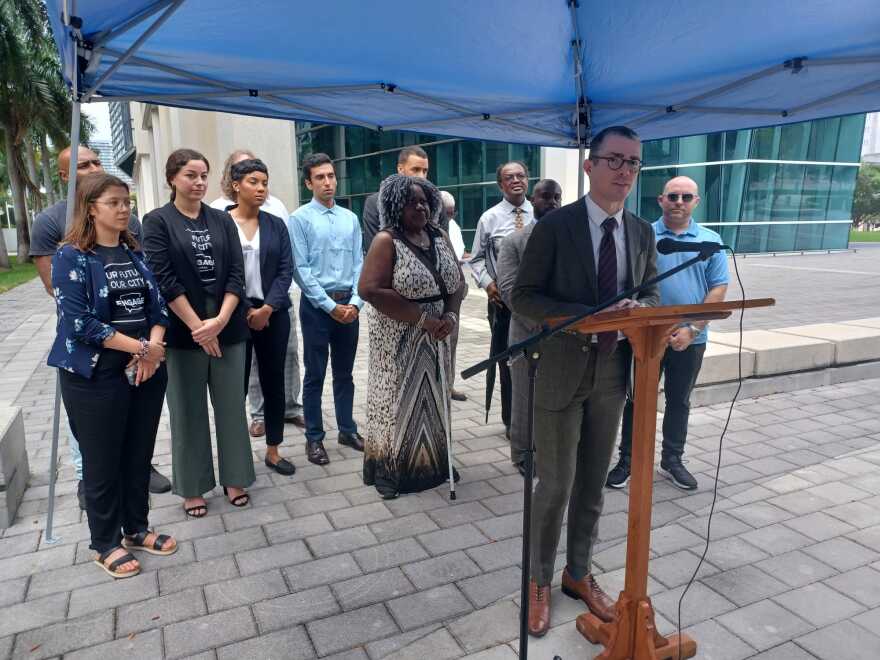A federal appeals court made a late Friday night ruling: Miami does not have to adopt a voting district map drawn by community groups who sued the city for alleged racial gerrymandering. Those groups have now taken the case to the highest court in the land.
The city was sued in December by local voting rights groups — Engage Miami, Grove Rights and Community Equity (GRACE), the South Dade and Miami-Dade NAACP Branches, and five city residents — in a federal case charging city officials with packing residents into city districts based on their race and ethnicity, in violation of the U.S. Constitution.
U.S. District Judge K. Michael Moore ruled in the plaintiffs' favor on July 30, ordering the city to submit the voting groups' proposed district map to the Miami-Dade County elections office, to use in the upcoming local elections before the lawsuit goes to a full trial.
READ MORE: Miami Commissioner Joe Carollo blasts federal judge on Spanish-language TV
Miami sought a second opinion on Moore's decision from the federal appeals court, arguing that changing the map so close to the election would throw the city into chaos. The U.S. Court of Appeals for the 11th Circuit sided with the city against Moore's ruling in a split 2-1 decision, saying the plaintiffs waited too long to file their lawsuit and that the courts should not interfere with election law so close to an election.
"The City adopted its redistricting legislation in March 2022. The plaintiffs waited nine months — December 2022 — to file their lawsuit," judges Elizabeth L. Branch and Robert Luck wrote in the majority opinion. "We therefore grant the City’s emergency motion to stay."
In his dissenting opinion, Judge Charles R. Wilson wrote that the urgency of the appeal so close to the election was because of the city's own delay for not appealing sooner. Miami previously appealed Judge Moore's ruling making the city throw out its original map, but dismissed their own appeal last month after city commissioners passed a new map.
But now the plaintiffs are taking the case all the way to the U.S. Supreme Court, in a last ditch effort to change the map for Miami's 2023 municipal election. They've asked the Supreme Court to vacate the appeals court's decision.
"Applicants seek vacatur because the Eleventh Circuit’s stay permits the City of Miami to use a remedial map the district court found was an unconstitutional racial gerrymander instead of a competing map that the district court found constitutional and that was submitted to the County Elections Department," the plaintiffs state in their application for review to Supreme Court.
The racial gerrymandering lawsuit will not go to trial until 2024, but Moore said in an explanatory order that the plaintiffs were likely to succeed at proving the city was guilty of racial gerrymandering, and an election should not be held with an unconstitutional map.
"Defendant had an opportunity to pass a constitutional plan that would remedy the unconstitutional violations the Court found was substantially likely to exist in the Enjoined Plan. It did not do so," Moore wrote.
The plaintiffs' application is addressed to Supreme Court Justice Clarence Thomas, who oversees the 11th judicial circuit that includes Florida.
The county elections office has already said that they are making preparations based on both the city's map — which Moore said was likely unconstitutional — and the plaintiffs' map, which seeks to make city districts more compact and drawn along "logical" boundaries like major roads and rivers.
The commission seats that are up for a vote in this year's election are in District 1, 2 and 4, currently held by Commissioners Alex Diaz de la Portilla, Sabina Covo and Manolo Reyes respectively.






